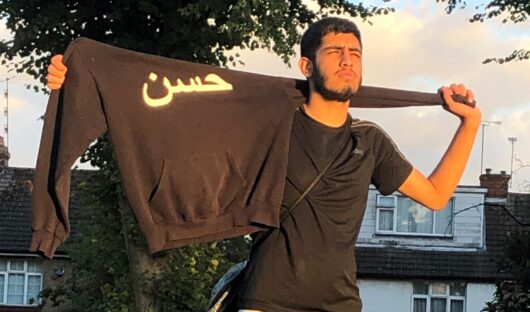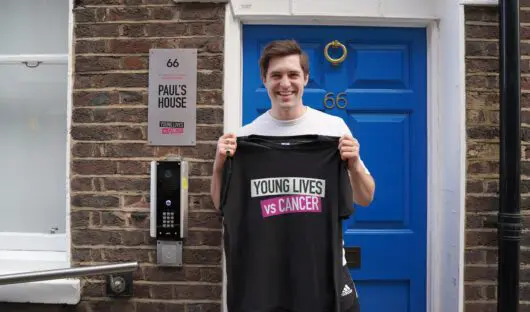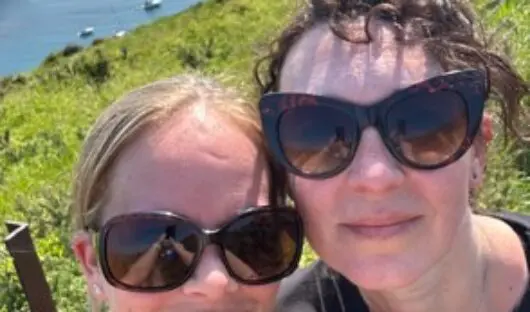How does Young Lives vs Cancer help young people face dying?
When a young person is diagnosed with cancer, our social work team is ready to help with every part of their journey. As part of Dying Matters Awareness Week, we asked two of our social workers, Karen Pinchbeck and Cat MacLeod, how they support young people who won’t get better to come to terms with an incurable diagnosis and make sure their wishes for their last days are achieved.
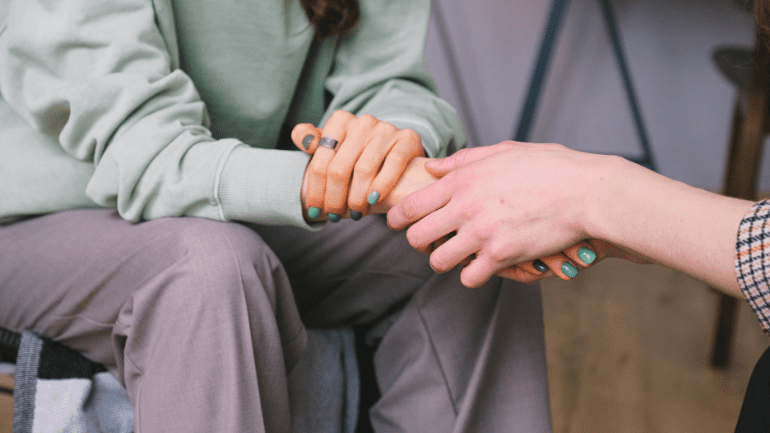
What does end of life care look like for a young person?
Karen:
Facing end of life is the hardest thing for a young person to understand, process and accept. The emotions that come with this mirror many of the stages of grief: sadness, anger, despair, disbelief and denial often alongside desperation, hope and acceptance. Many young people want as much information as possible in order to make plans and consider choices, while others simply don’t want to talk about it, ask any questions or give cancer any more of their time and energy. It is also natural for young people to ask “Why me?” and feel isolated and resentful of all the things their friends may get to do in life while their life is being cut short.
End of life care for these young people is about supporting them with whatever they’re feeling, and also helping them to make choices and have some control over what happens next. I support young people through it at their pace, balancing this with the understood pace of their illness. Experiencing a good end of life can mean living the best life you are physically able to, in the time you have left, and I help them to do that as much as possible.
Cat:
Describing what end of life care can look like for a young person is almost an impossible task. We’re all unique, with different likes and dislikes, hopes and values. End of life care should be centred around the young person and managed at their pace, so it really is different for everyone. It could include more time spent with friends and participating in special memory-making moments, or could take the form of quiet, peaceful retreat into a chosen space at a specific time. It could be loud and rambunctious, or calm and serene. It could last many months or a matter of days. It could be hospice based and centred around shared love and connection, or active until their mind and body seek silence and stillness. At the core of end of life care is honesty, sensitivity and respect for wishes, views and intentions.
How do you support young people at the end of their lives?
Karen:
Ultimately, we support young people in the way they wish to be supported. I give young people permission to talk or not talk, to be scared, relieved, uncertain, vulnerable, distressed, or angry and check their understanding throughout. A safe space is created around the young person to have open and honest discussions, without pressure or distraction, in order to talk openly and at their pace. In doing so, we provide the opportunity to ask questions, express thoughts, feelings and wishes. Often it helps young people to talk to a professional, rather than a family member who they may try to protect or put on a brave face for. Conversations at end of life do not always have to be meaningful though – they can be humorous and about everyday things rather than feeling the pressure of everything having to be serious all the time.
I help young people with lots of practical things too. It’s important for them to have a choice about where they die (at home, in hospital or in a hospice), have a plan for pain relief if required, and think about their funeral plans. I’ve supported many young people to make end of life plans, write a will, ensure their children will be cared for after they’re gone, and write letters and record memories to be passed on to loved ones. Some young people make bucket lists of things that are important for them to achieve, see and do, so I try to help with that too. I also provide professional guidance to others (school, college and employers as well as family members) who are also supporting the young person. There may be things that the young person and their loved ones want to say to one another before time runs out and assisting to open up these discussions can be so beneficial and bring great comfort.
Cat:
I invest in getting to know them. By listening, communicating in whatever way they find easiest and by moving at a pace of contact that works for them. Sometimes this is the occasional text, and at other times I have found myself sending nonsense WhatsApp video messages for the banter. There isn’t a prescribed format to follow nor a checklist to mark – I pride myself on adopting a ‘whatever it takes’ approach to support. Sometimes that’s recommending podcasts to listen to for distraction or good tunes to drift off into sleep enjoying. I also make myself available if they want to bounce ideas off me or just to have a quality ‘rant’. I help them to find joy in the moments that would otherwise feel weighted and encourage laughter when the feeling is right. I encourage them to stay connected to those they love and to keep investing in relationships. I give as much time and attention to them as I would at any other moment in our journey together, but am always mindful of the precious content they feel willing to share. I remind them that I am here; they are not alone.
How do you support the young person’s family?
Karen:
Support is provided emotionally, practically and financially, and often starts well before the young person’s life comes to an end. I support families to register the young person’s death, and can help with things like choosing an undertaker, choosing where the young person will rest before the funeral, and notifying others who need to know the young person has died. I have been with parents for support (often holding their hand) as they said their final goodbyes, during visits to bereavement suites once their child had passed away and as they stood at the graveside or crematorium and were physically parted.
We offer support and grants to help with the funeral and as much or as little ongoing emotional support as they would like. We have a Facebook support group for bereaved parents and will refer to counselling services if needed. We can also refer families to our partner charities for bereavement breaks (holidays for bereaved families).
Cat:
By offering to stand alongside them, to move at the pace that fits best for them, and by being available and able to absorb anything they feel they want to share. I might find myself gently easing them towards another specialist provider to meet an emerging need (like psychological therapy) or walking miles in silence as I listen while they talk. I offer myself as a sounding board when conflict arises, and remind them that we’ll try to do whatever it takes to fulfil the young person’s wishes. I am transparent in that I will only ever agree to do something I know I can do – that said, I’m always willing to get creative and to think outside the box if there’s something a little bit alternative we need to figure out. I remind them that I am here and they are not alone.
What would you like people to know about end of life care?
Karen:
Facing the end of your child or loved one’s life because of cancer is devastating and something none of us should have to face. As a charity, we want to ensure that all children and young people and their families are fully supported through cancer, no matter what the outcome of treatment is and no matter how long or short life is. With skilled support, end of life and bereavement can be a peaceful process. We can only continue to offer this with charitable support and ongoing donations from the public which we continue to be enormously grateful for.
Cat:
That it can be beautiful and incredible, and that there is no specific format you must follow. That at some point, each one of our lives will end and to be informed about how it could be, what it could look like and how those around you may come to experience it is very special. Getting it right for the person involved takes true attention to detail, and an unwavering commitment to doing the very best possible for them. By asking the questions, listening to the answers and being creative in your response to meeting needs and wants, truly special situations can evolve. Peaceful goodbyes, sensitive moments shared, interconnected love deepened. It’s all possible if time and attention is given to this final element of life.
You may also like to read
When a child or young person dies
We’re here if the unthinkable happens. We will get families the right support to keep going.
Read more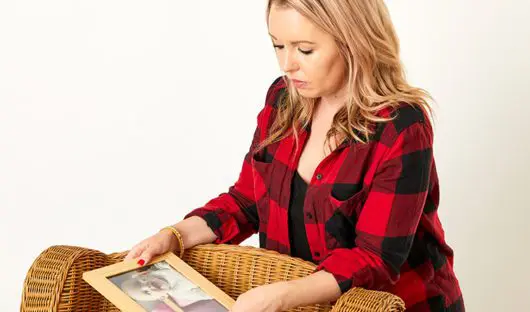
Living your life with a terminal diagnosis
Information and advice for young people living with a terminal diagnosis.
Read more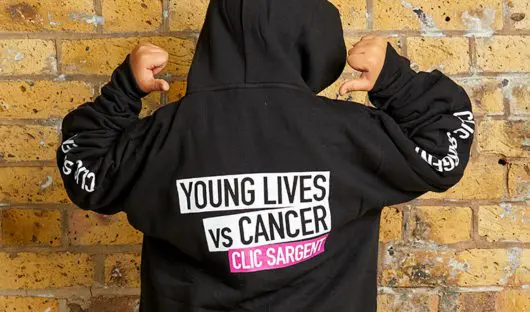
Posted on Tuesday 9 May 2023
